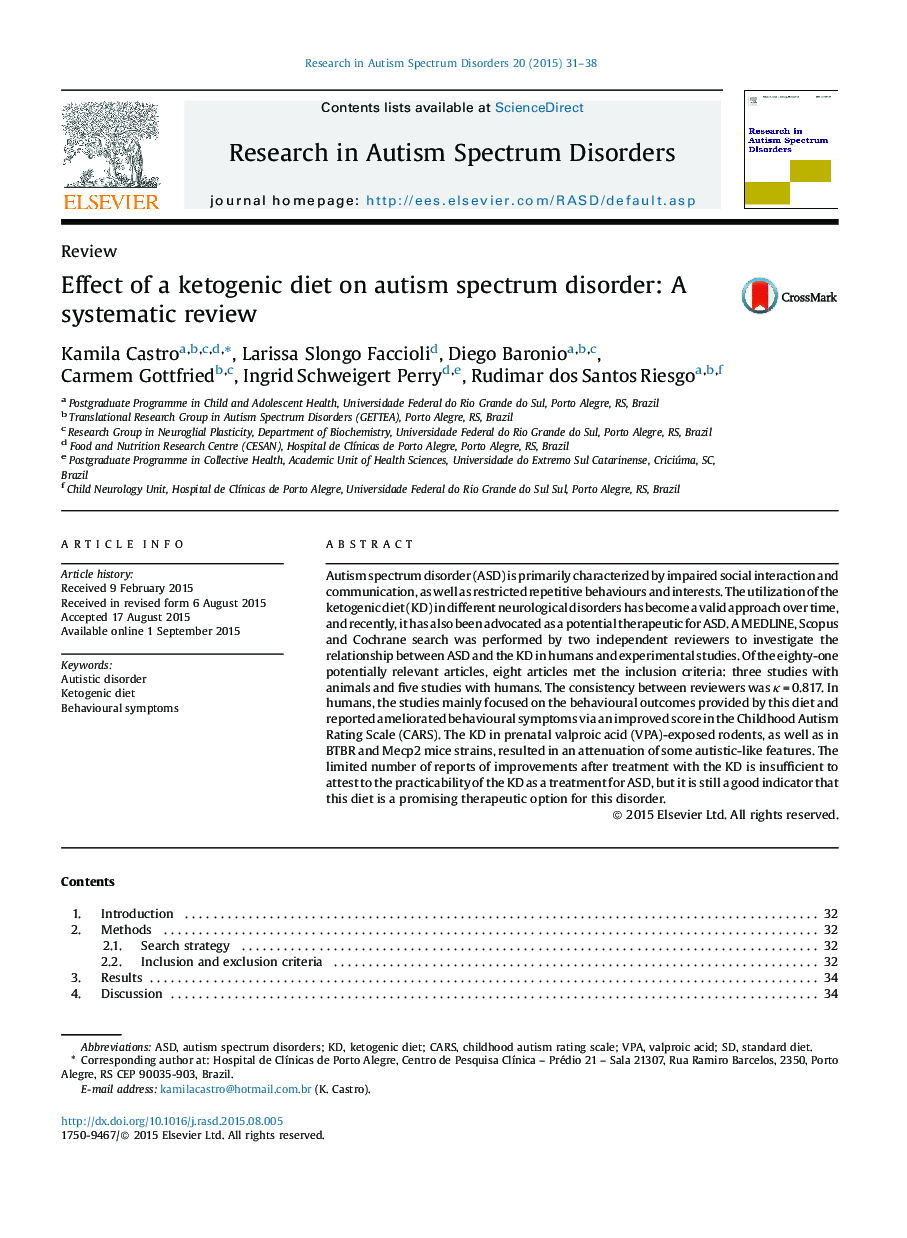| Article ID | Journal | Published Year | Pages | File Type |
|---|---|---|---|---|
| 369943 | Research in Autism Spectrum Disorders | 2015 | 8 Pages |
•We evaluated, throughout a systematic review, the studies with a relationship between autism and ketogenic diet.•Studies points to effects of KD on behavioral symptoms in ASD through the improve score in Childhood Autism Rating Scale (CARS).•Reviewed studies suggest effects of KD especially in moderate and mild cases of autism.•KD in prenatal VPA exposed rodents, as well in BTBR and Mecp2 mice strains, caused attenuation of some autistic-like features.
Autism spectrum disorder (ASD) is primarily characterized by impaired social interaction and communication, as well as restricted repetitive behaviours and interests. The utilization of the ketogenic diet (KD) in different neurological disorders has become a valid approach over time, and recently, it has also been advocated as a potential therapeutic for ASD. A MEDLINE, Scopus and Cochrane search was performed by two independent reviewers to investigate the relationship between ASD and the KD in humans and experimental studies. Of the eighty-one potentially relevant articles, eight articles met the inclusion criteria: three studies with animals and five studies with humans. The consistency between reviewers was κ = 0.817. In humans, the studies mainly focused on the behavioural outcomes provided by this diet and reported ameliorated behavioural symptoms via an improved score in the Childhood Autism Rating Scale (CARS). The KD in prenatal valproic acid (VPA)-exposed rodents, as well as in BTBR and Mecp2 mice strains, resulted in an attenuation of some autistic-like features. The limited number of reports of improvements after treatment with the KD is insufficient to attest to the practicability of the KD as a treatment for ASD, but it is still a good indicator that this diet is a promising therapeutic option for this disorder.
